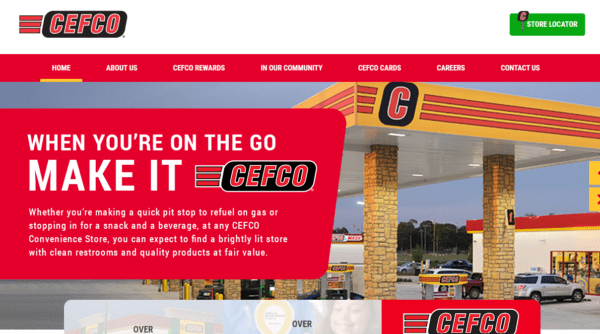What Retailers Can Learn from Grocers About Sustainability


Retailers can no longer ignore consumers’ demand for improved sustainability initiatives. From consumer lawsuits to national news headlines calling out failed efforts and empty promises, retail leaders are feeling the pressure to reduce the $2 billion in waste they generate each year, but they might not have a baseline for how to do so.
For years, grocers have been in the spotlight for their food waste and plastic bags. Recent studies show that 71% of grocers are now prioritizing sustainability, with 83% of grocery leaders specifically targeting waste reduction. Now it’s retailers’ turn to act.
Retailers should prioritize the same sustainability priorities grocers did to ensure their initiatives are coming to fruition and long lasting.
1. Data: Track and Analyze Store Waste
The integration of data analytics has empowered food stores to combat waste by identifying and addressing inefficiencies. Store waste analytics collects and records information about products, materials and resources that are discarded, damaged, expired or returned. It can separate the information by quantities, types, categories, locations and costs of waste to measure the impact of waste on a store’s performance.
By evaluating waste patterns, retailers can uncover opportunities to process their waste in ways that are more efficient and lead to greater landfill diversion. Like grocers, other retailers are dealing with more waste streams that can be uniquely processed and may require specific handling to meet compliance requirements. The complexities of today’s retail waste require a commitment to sustainability, but those efforts will drive meaningful results that will attract the eyes of investors and consumers.
Data analytics can also aid the following areas of a retailer’s operations:
● Improve efficiency and cost management: Data highlights the quantities and types of waste a business generates, which can inform what size equipment and schedule is ideal for an operation. For example, if a dumpster is too big or services are scheduled too frequently, a retailer may be overspending on waste management. Investing in better reporting tools can uncover both cost savings and operational efficiencies.
● Get ahead of Scope 3 carbon emissions regulations: Scope 3 emissions account for 90% to 98% of retailers’ greenhouse gas emissions, according to the National Retail Federation. Because of the vast footprint and association with other brands, retailers may be required to start reporting their sustainability numbers. With the stakes so high, why not leverage the power of data analytics to get ahead and proactively clean up operations to help close the gap on scope 3 emissions?
2. Transparency: Build Trust and Avoid Greenwashing
A 2022 Fast Company study found that 68% of company owners admit their business is guilty of greenwashing, a marketing gimmick intended to mislead customers who purchase services and products from environmentally conscious brands.
For example, a store could claim that product packaging is entirely recyclable. The company wants to appear to care about the environment while increasing its profit margins. However, while the product may be 100% recyclable, most of the marketplace doesn’t have a collection system to allow it to be captured correctly. So, in reality, it’s going to the landfill.
With today’s increased scrutiny and prevalence of sustainability, it’s all the more important to ensure what retailer’s claims hold merit.
Brands that don’t focus on transparency risk being called out or could see shoppers switching to brands with more detailed, less convoluted labels. Retailers have an opportunity to educate the public and communicate sustainability to win consumer loyalty. Clear, transparent and auditable data can keep the trust intact.
That’s easier said than done, of course. Supply chains are highly complex systems. But with an integrated approach that gathers data that backs and tracks, transparency will translate to proof and trust.
3. Expert Guidance: Seek Counsel to Interpret Data and Proactively Adjust Best Practices
Data sits at the heart of every enterprise — available to guide decisions, optimize operations and facilitate top-shelf customer experiences. However, many decision-makers may not know how to interpret and utilize their data.
Waste service providers can help retailers navigate the complex web of environmental regulations and adapt to volume fluxes. In turn, retail leaders can focus on their core business needs while still minimizing environmental impacts, maximizing their profitability and promoting their notable sustainability efforts.
Without the proper waste management, retailers experience:
● Added employee responsibilities that require management oversight, additional training time and might not be adequately followed
● Time spent away from storefront operations
● Inadequate understanding of seasonal waste volume changes and how to adapt
● Limited knowledge of all federal/state/local compliance requirements
● Unnecessary waste or sustainability initiative spend that isn’t achieving results
A waste management partner can mitigate these obstacles by analyzing data to optimize ordering and stocking and create improved shipping practices to reduce excess emissions.
Grocers have been using such strategies for years, demonstrating that an enterprise’s bottom line can help boost operational efficiency, improve customer loyalty, and build a more sustainable future. Retailers should strongly consider adopting these same practices.
Ray Hatch has served as President and CEO of Quest Resource Management Group (NASDAQ:QRHC) since February 2016. He’s a senior executive with 25 years of in-depth experience in waste management and food services industries that generated more than a billion dollars in revenue. Quest, a national provider of waste and recycling services, uses deep expertise to build single-source, client-specific solutions to address a wide variety of waste streams and recyclables across multiple industry sectors. Quest also provides information and data that tracks and reports the environmental results of Quest’s services and provides actionable data to improve business operations.











